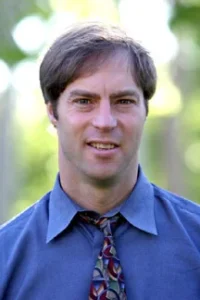
Stephen C. Meyer
Stephen C. Meyer, a renowned philosopher of science and advocate for intelligent design, leads as Director at Discovery Institute's Center for Science and Culture. A Ph.D. from Cambridge University, Meyer is recognized for his work challenging Darwinian evolution. His best-selling books, including "Signature in the Cell" and "Darwin's Doubt," exemplify his expertise in the intersection of science, faith, and philosophy. A sought-after speaker and scholar, Meyer's influential ideas continue to shape the discourse on science and religion. His bio-evolutionary critiques make him an important figure in modern scientific philosophy.
Books Mentioned on The Joe Rogan Experience (JRE) #2008 - Stephen C. Meyer & Joe Rogan
Author: Isaac Newton
Author: Jeffrey M. Schwartz, Rebecca Gladding MD
Book Title: Signature In The Cell: DNA And The Evidence For Intelligent Design
Author: Stephen C. Meyer
Book Title: The Resurrection Of The Son Of God
Author: N.T. Wright
Author: C.S. Lewis
Book Title: The Sacred Mushroom And The Cross
Author: John M. Allegro
Book Title: The Dead Sea Scrolls And The Christian Myth
Author: John M. Allegro
Book Title: The Immortality Key: The Secret Of The Religion With No Name
Author: Brian C. Muraresku
Exploring the Intersection of Science and Philosophy in JRE #2008
In episode #2008 of “The Joe Rogan Experience,” Joe Rogan invites Stephen C. Meyer, an expert in intelligent design, to discuss various aspects of the Big Bang theory, especially in light of the recent findings from the James Webb Telescope. Meyer addresses media reports suggesting that these findings challenge the Big Bang theory. He explains how these reports often stem from misinterpretations or biases, particularly highlighting the work of Eric Lerner, a physicist known for opposing the Big Bang theory. Meyer clarifies that the actual findings from the James Webb Telescope do not undermine the Big Bang theory but instead offer new insights into the universe’s expansion.
Confirming the Universe's Expansion
Meyer delves into the capabilities of the James Webb Telescope, emphasizing its role in detecting long-wavelength radiation from distant galaxies. This ability to observe “uber redshifted” radiation from galaxies far away confirms the theoretical expectations of an expanding universe based on the Big Bang theory. Contrary to some media reports, the detection of such radiation and the synthesis of images from these remote galaxies reaffirm the basic concept of an expanding universe, dating back to a singular beginning.
Resolving Anomalies in Galaxy Formation
The conversation also touches upon anomalies related to galaxy formation. Meyer acknowledges that the James Webb Telescope has observed galaxies that are more mature and numerous than previously expected. This revelation raises questions about the speed and timeline of galaxy formation, which may require adjustments in existing theories. However, these anomalies do not negate the broader framework of an expanding universe from a singular origin.
Theoretical Physics and the Universe's Origin
Meyer further discusses the intersection of observational astronomy and theoretical physics in understanding the universe’s origin. He references significant contributions like the singularity theorems of Stephen Hawking and Roger Penrose and the Board Guth Vilenkin theorem, all pointing towards a definite beginning of the universe. These theories, coupled with observational evidence, provide a robust argument for the universe having a singular origin.
Philosophical Implications
The episode concludes with reflections on the philosophical implications of these scientific discoveries. The idea that the universe had a definitive beginning challenges certain materialistic worldviews and aligns intriguingly with some theistic perspectives. Meyer and Rogan explore this alignment, considering the profound implications of scientific findings on our understanding of existence and the universe.
In summary, “JRE #2008” offers a deep dive into the realms of astrophysics, theoretical physics, and philosophy, providing a nuanced perspective on the Big Bang theory, the universe’s expansion, and the philosophical implications arising from these scientific explorations.












